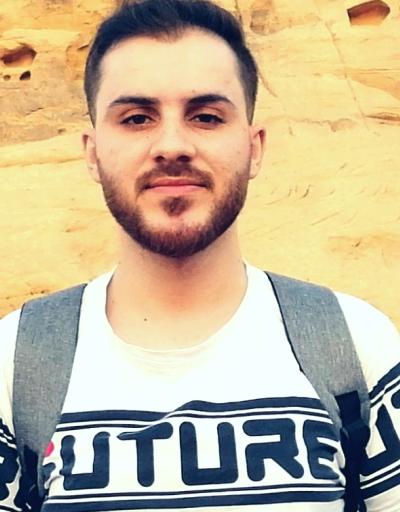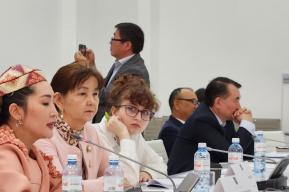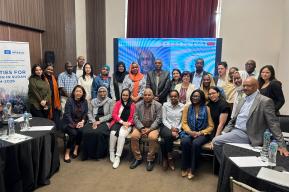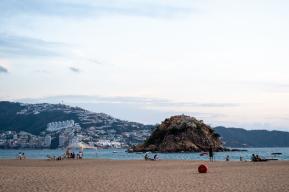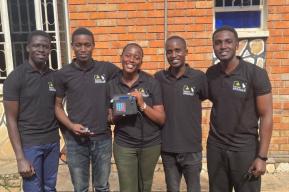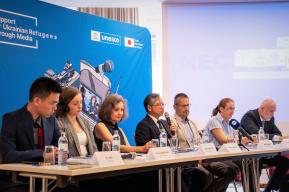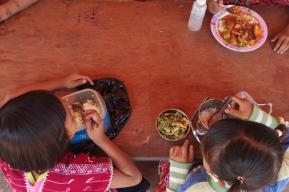Why did you leave your country?
In the Syrian Arab Republic, young people were a target of recruitment for all conflict parties. That is why I decided to leave my country. I couldn’t imagine living under these difficult circumstances. Leaving my home country was a different feeling. I was used to traveling, but this time I felt like I was leaving against my will. I was thinking about the future, about human rights and the new place I would call home.
I remember that everyone needed medical and psychological help and shelter when we arrived. I was only looking for water, but we felt safe when we found the Jordanian border guards with the staff and volunteers of the UN High Commissioner for Refugees. They checked and registered our identities and personal documents and transferred us to a safe place.
How did you settle in and how would you define your current state?
After my arrival, my family helped me move to the city, and there I felt that I lived in a society that already suffers from many economic challenges. The local people were nice and welcoming, and they felt and stood with us because they were aware of what was happening in Syria through the media.
I was in a very bad state because I could see the many challenges facing me and I couldn’t overcome them. I remained in this state for three years until I began to look at these challenges in a different way. My concepts began to change about the future, motivation, and the need for take the initiative to develop myself and make a difference. Not only on a personal level, but on a societal level because there are many young people who live in the same condition and have the experience as I do.
I remember the first thing I wanted to learn was time management and planning because I needed to complete my education. I was able to get that chance through a UNESCO-supported scholarship.
After that experience, I became very determined to succeed. I launched the Youth for Peace Initiative, which is led by refugee youth to promote peace-building values and to transform young people into leaders and global citizens who are able to make positive change in society.
I have been able to create success stories in many fields such as education, advocating for refugees and the necessity of their access to education, community initiatives empowering youth in the field of computing and digital skills, and promoting gender equality, for which I won the WikiGap award. This is an annual campaign that seeks to bridge the gap between women and men on the Wikipedia platform. I contributed to writing more than 10 articles about leading and successful women in the Arab region and received a WikiGap award from the Canadian ambassador and the Swedish ambassador to Jordan. And now I am a volunteer at the main team of HeForShe Solidarity Movement.
What are your plans for the future?
Of course, I would like to transfer the experience of my sustainable innovation (Youth for Peace) from Jordan to Syria after the war. I would like the concept of peace building to be known to all young people and stakeholders. I would like Syria to be a true model of a safe place for coexistence and mutual respect regardless of different ideas and beliefs after a fierce war. The Syrian people have to master the culture of difference.
I can describe my progress as a very radical progress, from a broken person to a change-maker and peacebuilder. I succeeded in obtaining a seat at the Kofi Annan Foundation in Geneva and I will be a change-maker 2022 soon.
What does the word “refugee” mean to you?
For me, I see a refugee as a person who has been forced to leave his country, and thus his or her options for life have become limited and almost non-existent. In my country, we used to receive and host refugees from Iraq, Palestine, Lebanon, and many other countries and we provided them with opportunities. I will keep these values that I have gained from my country.
For me, I see that asylum in itself was my opportunity for the progress that I made, because I realized that challenges and difficulties sometimes can in themselves be the strongest motive for creating change and progress. Therefore, it is an opportunity to advocate for the promotion and protection of human rights.
What message of hope would you like to share with those who are currently far from their homes, schools and friends?
I would like to tell them that you are not different from others, you only have a special situation, and you did not choose it by your own will. You will be able to overcome all challenges with your determination and strong motivation. You have to stay strong and remain proud of yourself and your achievements and must remain convinced that you will be an added value to your countries when they become safe and return to them: You will be able to build your country again. You are the future and the leaders of tomorrow.
- UNESCO’s work in education in emergencies


